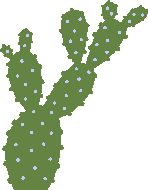 What is a Master Gardener? - October 10, 2001 Jeff Schalau, County Director, Agent, Agriculture & Natural Resources Arizona Cooperative Extension, Yavapai County In this column, I mention or refer to Master Gardeners almost every week. Those unfamiliar with the Cooperative Extension Master Gardener Program may just think I'm referring to really savvy, green-thumbed, gardening enthusiasts. This is true most of the time, but a true Master Gardener has two very key attributes: a willingness to volunteer and sharing science-based horticultural knowledge in their community. Washington State University Cooperative Extension first offered the Master Gardener program in 1973. It started with Dr. David Gibby, a County Extension Agent. He found himself overwhelmed by the enormous number of requests for horticultural information (some things never change). Dr. Gibby, along with several colleagues, designed a curriculum to train volunteers in various aspects of horticulture science. After completing the course, the volunteers would assist him in providing information to community members. The first Master Gardener course was a success and the idea spread across the country and beyond. Today, the Master Gardener program is active in all 50 states and four provinces of Canada. In Yavapai County, Master Gardeners attend a thirteen-week Master Gardener training taught each spring alternating each year between Prescott and Cottonwood (the 2002 course will be in Cottonwood). The weekly class meets for 3 to 3 ½ hours per week usually on Wednesday mornings. I teach four or five of the course sessions. The remaining sessions are taught by University of Arizona Specialists and sometimes by experts residing in local communities. Topics presented include: basic botany, soils, fruit trees, planting, staking, pruning, ornamental trees and shrubs, water/irrigation, wildlife in the garden, insects, integrated pest management, pesticide use/safety, vegetables, turf, propagation, and plant diseases. The course incorporates hands-on activities and exploration to compliment the lecture. Arizona has an excellent Master Gardener Manual, which is included with the $90 course tuition. The Manual is also available on-line (http://ag.arizona.edu/pubs/garden/mg/). After completing the course, Yavapai County Master Gardeners must complete 50 hours of volunteer service within the first year to become certified. There is a wide range of volunteer activities available. First and foremost, Master Gardeners assist Cooperative Extension by answering client questions on the hotline. However, some people are not comfortable answering calls, so we have a range of other activities. Some of these include: staffing booths at fairs and community events, assisting with school and community gardens, and speaking to diverse public groups. As you can see, the emphasis is on education and helping others to become successful, responsible gardeners. We hope to get our own Master Gardener demonstration garden/orchard in conjunction with one of our county offices in the future. Last year, Master Gardeners from Gila, Yavapai, and Coconino counties banded together to present the 1st Annual Arizona Highlands Garden Conference in Payson. This year, Master Gardeners are busily planning and preparing for the 2nd Annual Arizona Highlands Garden Conference that will be held October 8 and 9 in Prescott (the conference is sold out). Next year, the conference will be held in Coconino County. These conferences also offer unique opportunities for volunteers to continue their education and become involved. What do the Master Gardeners get in return for their efforts? They receive: training that will help them to become better gardeners at home or at work; a monthly newsletter edited and produced by Yavapai County Master Gardener, Nora Graf; continuing education through Cooperative Extension programs, conferences, and a recently formed Master Gardener Association; picnics to celebrate; and support of the statewide network of experts and specialists at the University of Arizona. If you feel like this program is for you, then I invite you to become a Yavapai County Master Gardener. The next course will be offered in Cottonwood (location TBA) starting on January 30 and ending on April 24, 2002. Applications for the 2002 course will be mailed out in December 2001. For more information about the 2002 Master Gardener course, mail your name, address, phone number, and E-mail (if you have one) to: Master Gardener Course 2002, C/O Jeff Schalau, P.O. Box 388, Prescott, AZ, 86302 or E-mail your request to jschalau@ag.arizona.edu. The University of Arizona Cooperative Extension has publications and information on gardening and pest control. If you have other gardening questions, call the Master Gardener line in the Cottonwood office at 646-9113 or E-mail us at mgardener@kachina.net and be sure to include your address and phone number. Find past Backyard Gardener columns or submit column ideas at the Backyard Gardener web site: http://ag.arizona.edu/yavapai/anr/hort/byg/. |